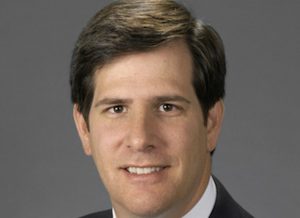In a landmark acquisition that has been the subject of much speculation and anticipation, private equity firm Roark Capital has sealed the deal to purchase Subway for up to a staggering $9.55 billion, which includes accounting for debt and performance-based criteria. This monumental agreement comes after a lengthy and competitive auction process that began in February and saw the involvement of numerous private equity groups.
What sets this acquisition apart is the introduction of an earn-out agreement, a somewhat rare mechanism in the consumer and retail sectors. Under this arrangement, Subway's cash flow must meet specific milestones over a span of two or more years following the completion of the acquisition, ultimately determining the final price tag. Without the earn-out, the deal is reported to be valued at $8.95 billion, showcasing the significance of Subway's future financial performance.
This earn-out strategy played a pivotal role in bridging the valuation gap that existed between Roark Capital and Subway's founding families, the DeLucas and Bucks, who had initially sought more than $10 billion for the brand. While the families touted Subway's strong global brand and international growth, private equity firms argued that the U.S. market was oversaturated, leading to negotiations hinged on this innovative earn-out mechanism.
Roark Capital managed to outbid competitors, including TDR Capital and Sycamore Partners, whose final offers were reported to be $8.75 billion with an earn-out and $8.25 billion without. Remarkably, Roark has even agreed to pay Subway's owners 4% of the deal's value should antitrust officials intervene and prevent the acquisition.
The acquisition comes with a 12-month timeline for completion, during which both parties will navigate regulatory hurdles and ensure a seamless transition.
Roark Capital's confidence in the transaction's approval stems from their belief that the restaurant industry is too fragmented to pose significant competition concerns. This optimism is grounded in Roark's ownership of Jimmy John's and several other restaurant brands, positioning them as formidable players in the industry.
With over 37,000 locations spanning 100 countries, Subway has undoubtedly been a global giant in the fast-food industry. The acquisition by Roark Capital, a private equity firm with holdings that include Jimmy John's, Arby's, Baskin-Robbins, and Buffalo Wild Wings, is poised to bring significant changes and synergies to the fast-food landscape.
The acquisition also involved complex tax considerations, as co-founder Peter Buck's 50% stake in Subway was posthumously transferred to his charitable organization, shielding it from certain taxes.
Subway, based in Milford, Connecticut, has embarked on an extensive operational restructuring to address outdated décor and the impact of its famous $5-foot-long sandwich deals on franchisees. This included a menu overhaul and a high-profile marketing campaign in 2021 to revitalize the brand.
Despite facing challenges such as the closure of thousands of U.S. locations since 2016, Subway's same-store sales have shown impressive growth, with a 9.85% increase in the first half of 2023. Sources estimate the 12-month EBITA (Earnings Before Interest, Taxes, and Amortization) at a robust $800 million.
Paul, Weiss, Rifkind, Wharton & Garrison LLP advised Roark Capital; JPMorgan Chase provided advisory services to Subway; and Sullivan & Cromwell LLP handled the financing for this significant acquisition.
This acquisition marks a pivotal moment in the fast-food industry, with Roark Capital poised to leverage its extensive experience and expertise in restaurant businesses to steer Subway toward a new era, particularly in the U.S. market, where growth potential remains significant.




















